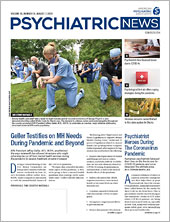Since the beginning of the COVID-19 pandemic, substance use disorder (SUD) experts have warned that individuals with SUDs are likely to struggle even more as they face isolation and disruptions in access to care. Though it can take months to finalize data on fatal and nonfatal drug overdoses, preliminary reports are proving those experts right.
The Washington Post reported last month that state and local offices across the country are reporting spikes in drug overdoses.
A May report by the Overdose Detection Mapping Application Program (ODMAP), a federal overdose tracking initiative, focused on six unnamed states with reliable overdose data. In two of those states, ODMAP found that there was a statistically significant rise in overdoses since the pandemic began. From January to April nationally, there was a 16.6% increase in suspected overdoses compared with the same period last year. “A comparison of raw numbers yields an increase of 11.39% for fatal overdoses and an increase of 18.64% for nonfatal overdoses during that same time period,” the report stated.
According to Politico, James Carroll, director of National Drug Control Policy in the Executive Office of the President, said that experts expect the death count to continue to rise, especially as not all states have reported their data yet.
“These trends are very concerning, but they’re also not surprising,” said Elie Aoun, M.D., a general addictions and forensic psychiatrist at Columbia University and a member of APA’s Council on Addiction Psychiatry. “I’ve seen relapses in my practice, and many people I’ve spoken to have seen similar issues.”
Feelings of isolation and depression can push people in recovery to use drugs again, he explained. “Someone with an addiction is going to say, ‘The way I’m feeling now, during the pandemic, in terms of social isolation and lack of support feels exactly how I felt when I used drugs,’ ” he said.
Yet their access to SUD treatment may also be complicated by the pandemic and the associated inadequate public health response.
Between April 27 and May 8, the Addiction Policy Forum conducted an anonymous survey of its nationwide network of patients with SUDs, those in recovery, and family members of people with SUDs. Of the 1,079 respondents, 34% reported changes or disruptions in accessing treatment or recovery support services.
Kaiser Health News reported that some drug rehabilitation centers around the country have experienced COVID-19–related difficulties, such as outbreaks of the virus or associated financial difficulties that have forced them to close or halt admissions.
The people who may be hurt most by the pandemic are those who are still using drugs or seeking treatment, Aoun explained. “It takes a lot of effort to take that first step and say, ‘Drugs are not working for me anymore, and I need to do something about it,’ ” he said. The pandemic makes that first step even harder.
Simultaneously, there have been some disruptions in the drug supply. Dealers who may have been considered reliable in the past may be unavailable, causing people to turn to new and unfa.miliar dealers and substances, Aoun explained, which may increase the risk of overdose.
When the pandemic first began, some people began to stockpile drugs out of fear that there would be supply chain disruptions, Aoun said. “We know people with addictions are not known for appreciating future rewards,” he said. “They focus on the immediate rewards, and if these drugs are available, they’re going to use them, and this definitely promotes overdoses.”
He added that, despite the challenges that people with SUDs are experiencing, he has seen communities come together in unprecedented ways.
“Because of the pandemic, people struggled with finding purpose in their life, and a lot of them ended up serving others,” he said. “They found purpose in creating support systems for the elderly and people with addictions, reaching out to them. These small gestures of hope have brought us together.” ■
“ ‘Cries for Help’: Drug Overdoses Are Soaring During the Coronavirus Pandemic” is posted
here.
“Pandemic Unleashes a Spike in Overdose Deaths” is posted
here.
“Survey: COVID-19 Affecting Access to Addiction Treatment and Key Services” is posted
here.

